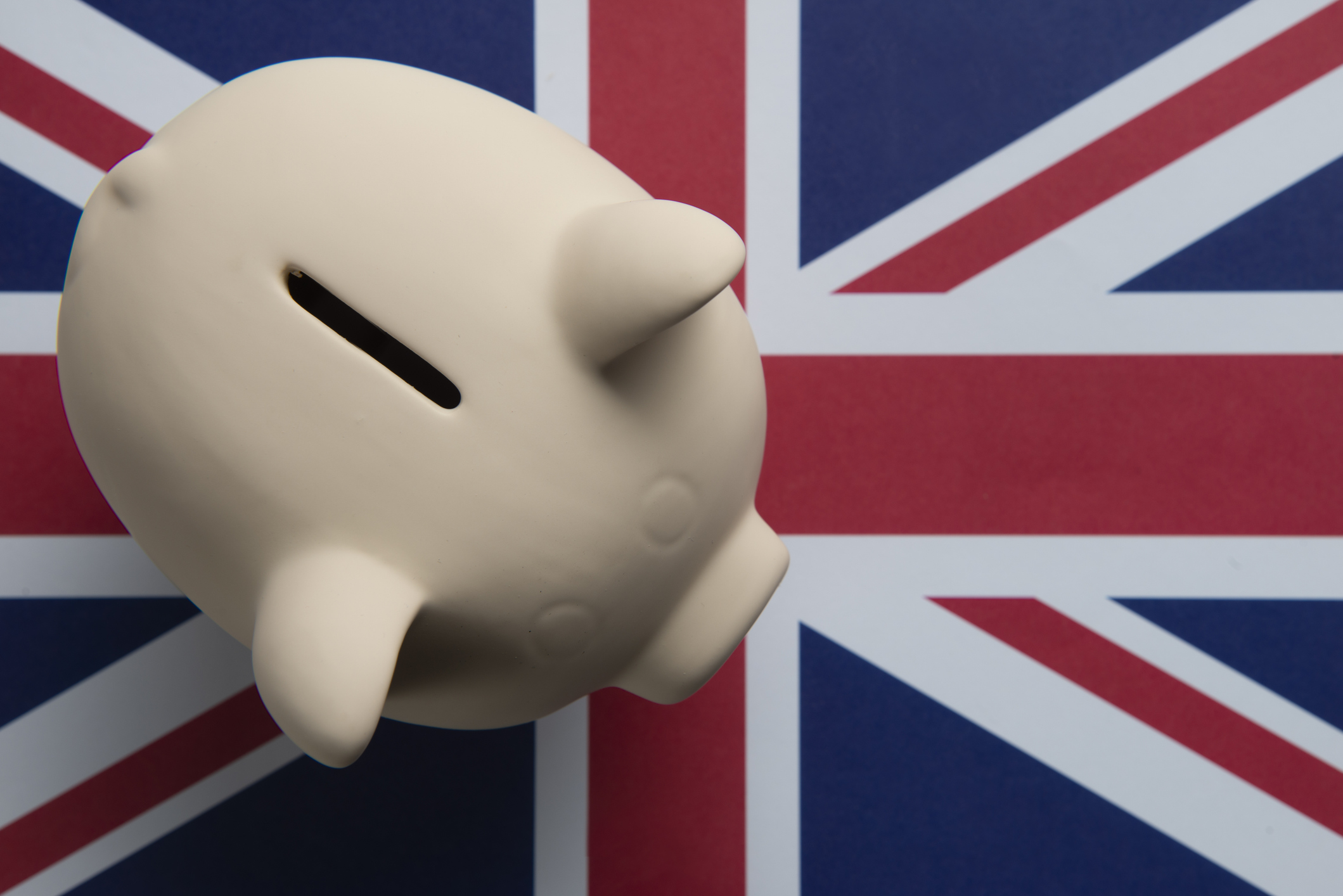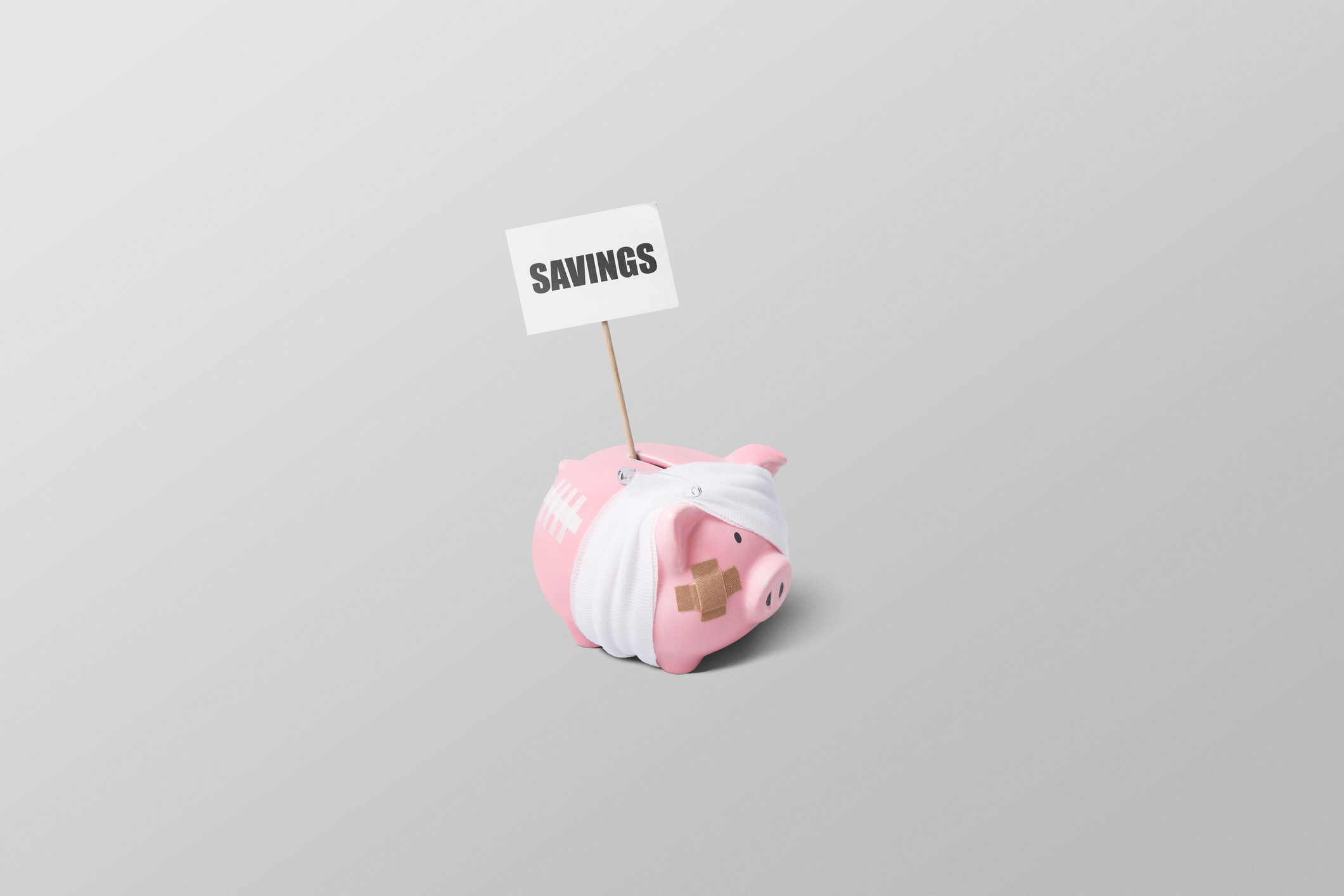Act now as savings rates beat inflation for the first time since 2021
The drop in inflation to 4.6% means your savings can now grow at a faster rate than that of goods and services. But will these inflation-busting rates stick around?


Get the latest financial news, insights and expert analysis from our award-winning MoneyWeek team, to help you understand what really matters when it comes to your finances.
You are now subscribed
Your newsletter sign-up was successful
Want to add more newsletters?

Twice daily
MoneyWeek
Get the latest financial news, insights and expert analysis from our award-winning MoneyWeek team, to help you understand what really matters when it comes to your finances.

Four times a week
Look After My Bills
Sign up to our free money-saving newsletter, filled with the latest news and expert advice to help you find the best tips and deals for managing your bills. Start saving today!
While the best savings deals have reached a 15-year high and we are now seeing inflation-busting rates, you will need to act fast to bag the top rates as MoneyWeek data shows savings deals might have reached their peak.
Inflation has fallen sharply to 4.6%, meaning hundreds of savings accounts now beat the cost of living for the first time in two years.
However, the best deals might not last for long. The Bank of England’s decision to freeze interest rates for the second time at 5.25% earlier this month has caused a number of savings providers to reduce or withdraw their top rates - including some of the best easy-access accounts and one-year fixed deals.
MoneyWeek
Subscribe to MoneyWeek today and get your first six magazine issues absolutely FREE

Sign up to Money Morning
Don't miss the latest investment and personal finances news, market analysis, plus money-saving tips with our free twice-daily newsletter
Don't miss the latest investment and personal finances news, market analysis, plus money-saving tips with our free twice-daily newsletter
Find out which savings accounts beat inflation, and whether savings rates will continue to fall.
Which savings accounts beat inflation?
According to Office for National Statistics data, the Consumer Prices Index (CPI) measure of inflation fell to 4.6% in the 12 months to October - the lowest level in two years and a sharp drop from the 6.7% figure recorded in September.
The big reduction is owed largely to falling energy costs, even though prices are still significantly higher than pre-pandemic levels.
As a result, hundreds of savings accounts now offer inflation-busting rates. According to Moneyfacts, there are 56 easy-access accounts, 86 notice accounts, 46 variable-rate ISAs, 215 fixed-rate ISAs and 489 fixed-rate bonds that beat inflation.
Rachel Springall, finance expert at Moneyfacts, said: “It has taken over two years, but finally inflation has fallen to a level where there are now some standard savings accounts that can outpace its eroding prowess.
“The incentive to switch remains for those savers with flexible pots, as many of the top-rate deals that pay 5% or more for new customers do not come from the biggest high-street bank brands.”
Currently, the top easy-access savings account offers 5.22%, from Metro Bank. The provider also offers a 5.91% market-leading one-year fixed bond.
This means that after inflation, savers would earn a real return of 0.62% in Metro Bank’s easy-access account, and 1.31% in the one-year account.
The Isa market has been picking up recently, offering competitive rates of around 5.5% for a one-year fixed Isa. Plus, with rumours of new Isa reforms to be announced in the Autumn Statement, Isas could become more attractive to savers.
The top easy-access cash Isa, from Zopa, pays 5.08% tax-free interest to savers. After inflation, this amounts to 0.48%.
Why savers should move quickly to snap up the best deals
However, while savers may be celebrating the return of inflation-busting interest rates, they should act quickly as some of the top deals could have a short lifespan.
Springall explains: “The savings market has felt a few rate cuts since last month’s inflation announcement, with fixed-rate bonds under the spotlight. Savers will no longer find a bond that pays more than 6%, but it is worth noting that challenger banks are still holding the top spots despite shuffling positions.
“These institutions can launch enticing offers to attract deposits for their future lending, but they also act quickly to pull offers when they become fully subscribed. Consumers will need to act quickly to grab the top deals on offer and consider the more unfamiliar brands when comparing deals.”
Will savings rates fall?
A string of base rate hikes by the BoE earlier this year was an attempt to ease inflation. It meant fixed savings rates soared above 6%.
But now the government has reached its target to halve inflation and the BoE has held the base rate at 5.25% at two consecutive meetings, this could be a sign that interest rates will soon start to fall - pushing savings rates down too.
Adam Thrower, head of savings at Shawbrook Bank, says savers should view a fall in inflation as a warning sign. “While it might not happen immediately, if inflation keeps falling interest rates could reduce as quickly as they’ve increased - so people should get a move on, review their savings asap, and switch to a better paying account while they can.”
MoneyWeek data shows that on 14 September, our one-year fixed-rate best-buy guide consisted of multiple savings rates of 6% or above, with NS&I topping the table with its 6.2% rate. This was followed by Union Bank of India with 6.11% and Ahli United Bank UK with 6.1%.
But now there are no savings providers offering a rate of 6% or more on a one-year bond.
In fact, one-year rates haven’t risen since 9 October, and this month they’ve been on the decline.
Plus, we recently saw top easy-access rates fall amid another interest rate freeze, including Paragon Bank trimming its market-leading 5.25% rate to 5.16% (currently 5.05%), and Beehive Money cutting its 5.2% rate to 5.15%.
Sarah Coles, head of personal finance at the wealth manager Hargreaves Lansdown, comments: “We’re past the peak for savings, with the most competitive fixed rates across all periods now dropping below 6%. We’re not expecting dramatic overnight falls, but we are expecting a gradual reduction, so if you were considering a fixed-rate account, it’s worth taking advantage of the best rates while you can.”
Get the latest financial news, insights and expert analysis from our award-winning MoneyWeek team, to help you understand what really matters when it comes to your finances.
Vaishali has a background in personal finance and a passion for helping people manage their finances. As a former staff writer for MoneyWeek, Vaishali covered the latest news, trends and insights on property, savings and ISAs.
She also has bylines for the U.S. personal finance site Kiplinger.com and Ideal Home, GoodTo, inews, The Week and the Leicester Mercury.
-
 How should a good Catholic invest? Like the Vatican’s new stock index, it seems
How should a good Catholic invest? Like the Vatican’s new stock index, it seemsThe Vatican Bank has launched its first-ever stock index, championing companies that align with “Catholic principles”. But how well would it perform?
-
 The most single-friendly areas to buy a property
The most single-friendly areas to buy a propertyThere can be a single premium when it comes to getting on the property ladder but Zoopla has identified parts of the UK that remain affordable if you aren’t coupled-up
-
 Brits leave £31.6 billion in savings accounts paying 1% interest or less – do you need to switch?
Brits leave £31.6 billion in savings accounts paying 1% interest or less – do you need to switch?Eight million Brits hold money in savings accounts that pay 1% interest or less, meaning the value of their cash is being eroded by inflation.
-
 Buying vs renting: is is better to own or rent your home?
Buying vs renting: is is better to own or rent your home?The higher mortgage rates of recent years have actually made renting comparatively cheaper, analysis suggests. But there are hidden costs to long term renting.
-
 Hargreaves Lansdown launches first cash ISA – how does it compare?
Hargreaves Lansdown launches first cash ISA – how does it compare?Hargreaves Lansdown is offering an own brand cash ISA for the first time with their new easy-access account. How does the interest rate compare to other products?
-
 Is Britain heading for a big debt crisis?
Is Britain heading for a big debt crisis?Opinion Things are not yet as bad as some reports have claimed. But they sure aren’t rosy either, says Julian Jessop
-
 ‘My NS&I one-year British Savings Bond is maturing – what should I do with my savings?
‘My NS&I one-year British Savings Bond is maturing – what should I do with my savings?Thousands of savers will see their fixed-rate savings accounts mature next month. We consider whether you should stick with NS&I or move to a competitor
-
 How to pay in a cheque
How to pay in a chequeReceiving or writing a cheque has become much less common in recent years as instant bank transfers have grown in popularity. Amid widespread bank branch closures, we explain what to do if you get a cheque, and how you can pay one into your bank account.
-
 ‘Current account coasters’ are leaving billions of pounds languishing in low interest accounts
‘Current account coasters’ are leaving billions of pounds languishing in low interest accountsThe average saver with £10,000 or more in their zero interest current account is missing out on over £1,500 in potential interest payments, new research has revealed.
-
 Best fixed rate cash ISAs – earn up to 4.22%
Best fixed rate cash ISAs – earn up to 4.22%We look at the best fixed rate cash ISAs on the market right now for savers who are willing to lock their cash away for guaranteed tax-free gains
